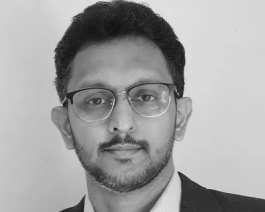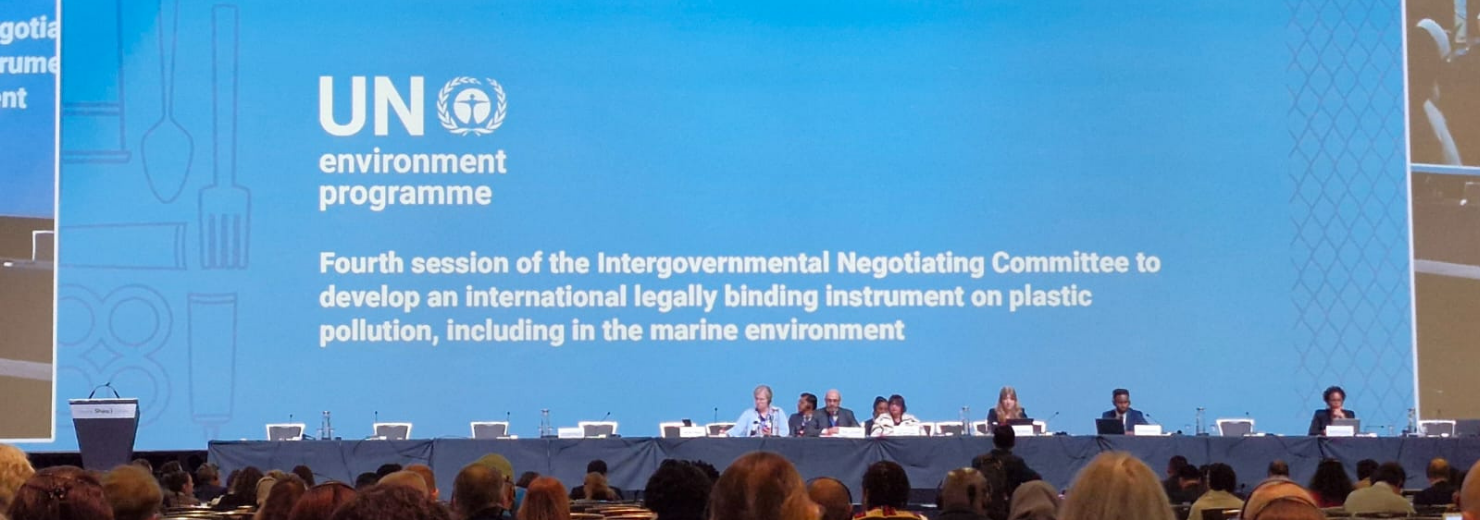Financing the End of Plastic Pollution: The Top Three Financing-linked Topics Discussed at INC-4
-

-
Umesh Madhavan
-
May 2, 2024
-
6 min read

Umesh Madhavan
May 2, 2024
6 min read


At the fourth session of the Intergovernmental Negotiation Committee Meetings (INC-4) in Ottawa, the financing mechanism and resources for the implementation of a legally binding instrument on plastic pollution (ILBI) were discussed extensively under Subgroup 2.1 discussions. The mobilization of different sources and types of financing, and the creation and operationalization of the environmental fund will be key determinants to the success of the treaty.
In negotiations among Member States and in discussions outside the plenary, three financing-linked topics attracted the most interest – the plastic pollution fee, outcome-based financing, and the fund for the implementation of the treaty.1
The Plastic Pollution Fee: To Fee or Not to Fee
The concept of a plastic pollution fee was proposed by Ghana prior to INC-2 in early 2023, and the impact of a US$60- US$90 per tonne fee on polymer prices modeled by Minderoo Foundation in their latest “Polymer Premium: a fee on plastic pollution” report.
A plastic pollution fee was one of the most polarizing topics discussed among Member States at INC-4. While some emerging nations, including several Member States from Africa and Small Island Developing States were in favor of the fee, others, including but not restricted to countries whose economies depend on the petrochemical industry, opposed it. The arguments against the fee included the imposition of a fee being a sovereign decision and not a multilateral one, the lack of clarity on how such a fee would be operationalized, and a potential double charge due to Extended Producer Responsibility (EPR).
The streamlined version of the revised draft text continues to draw reference to the fee, however imposing a uniform, globally mandated plastic pollution fee is looking increasingly challenging. As with a global carbon tax and a carbon pricing framework, a plastic pollution fee, if eventually implemented, is likely to be at a national level than a uniform global fee. Corridor discussions suggested that perhaps the way forward lies in not calling it a fee, but an incentive for investing in alternatives to plastics and downstream solutions to plastic pollution.
Pooling in Capital Through Outcome-based Financing
At side events outside the official plenary, presentations on outcome-based financing were amongst the most showcased events. Outcome-based financing is not an entirely new instrument to provide funding for developmental and environmental issues. However, the World Bank’s recent US$100 million Plastic Waste Reduction-Linked Bond, was probably the first time that investment returns were tied to measurable criteria for reducing plastic pollution in the environment.
As an innovative instrument which pools new financial flows to tackle plastic pollution, discussion on outcome-based financing was welcomed by both Member States and Observers alike. Questions however remain on the quality of outcomes, their measurement, plastic credits being used for greenwashing, and the suitability of the instrument for smaller capital raises given due diligence and other associated costs.
While not a panacea for the significant investment (an estimated US$17 trillion) needed for tackling the plastic pollution challenge, the finance provided through the bond –US$5.7 and US$8.2 million each to two organizations is an encouraging sign. This upfront capital addresses two significant issues for enterprises working on tackling plastic pollution. Firstly, funding for the missing middle – enterprises that may be too big to receive microfinance, grants, or accelerator/ incubator funding, but too risky for commercial bank financing. Secondly, access to finance that can be used not only for capital expenditure but to cover day-to-day operational expenses as well.
All impact investments have an environmental or social outcome tied to it. Hence, capital raising exercises for all solutions to tackle plastic pollution should not be grouped under the “outcome” based financing umbrella. It must also not be used as a one-size fits all for all solutions to tackle plastic pollution. Outcomes should be clear and measurable with standards and credible verification systems in place, and outcomes must be driven towards reduction rather than the management of plastic waste as much as possible.
Who Pays? The Mechanics of the Fund
In several previous Multilateral Environmental Agreements (MEA), funding for the implementation of the MEA was often discussed as a bolt-on towards the end of the negotiations. To bring this discussion forward in the context of the ILBI and to provide Member States a platform to convene and engage with peers, the Financing Coordination Group2 conducted the first of a four-part webinar series ahead of INC-4 in April 2024.
In Ottawa, Subgroup 2.1 brought discussions about the fund to the forefront. Views expressed by Member States diverged with a sense of distrust as they voiced their experiences with ongoing MEA financial frameworks. Some Member States and in particular developed nations were in favor of using an existing fund within a financial arrangement such as the Global Environment Facility Trust Fund. However, others, including developing countries, called for the establishment of a new “dedicated and independent multilateral fund”.
With only initial views expressed on whether the fund should be existing or new, there remains much room for discussion on the establishment, governance, and application of funds. Other questions also remain unanswered on contributions to be made according to the principles of Common but Differentiated Responsibilities (CBDR) or otherwise and of the receipt of funds being tied to the vulnerability and needs of countries (Small Island Developing Nations for example). With calls for the establishment of a new fund, it also remains to be seen if other financial institutions will throw their hat into the ring to host and manage the fund.
As INC-4 concluded, financing was one of the topics identified for intersessional work. Multiple financing-linked considerations are expected to be discussed prior to INC-5 scheduled to take place in Busan, Republic of Korea in November 2024. We keep our fingers crossed that Member States make good use of the intersessional meetings to align on outstanding issues and utilize the seven days of INC-5 “to achieve maximum ambition”.
Endnotes
1 Extended producer responsibility (EPR) which received a lot of interest but was recommended by several Member States to be discussed under Part II.7 of the revised draft text, and mobilizing private capital which received a smattering of references are not discussed in this article.
2 Comprising the Organisation for Economic Co-operation and Development (OECD), The Circulate Initiative, United Nations Environment Programme Finance Initiative, the World Bank, and the World Economic Forum with guidance from Member States including the Netherlands, Ghana, Indonesia, Norway, and the United States of America.